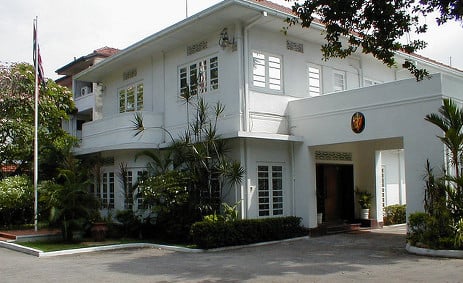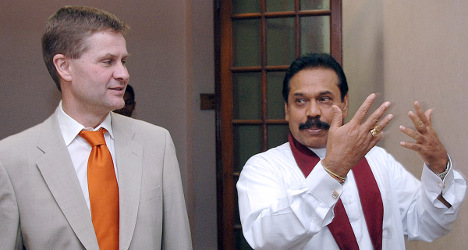SRI LANKA
Hundreds protest against Norway in Sri Lanka
Huundreds of government supporters marched on the Norwegian embassy in Columbo on Friday to denounce what they called Oslo's support for remnants of the Tamil Tiger rebels living abroad.
Published: 18 May 2014 17:22 CEST

The Norwegian Embassy in Columbo. Photo: Royal Norwegian Embassy/Flickr
Norway acted as peacebroker but failed to secure agreement from the parties to a peaceful end to the conflict. Sinhalese nationalists accuse it of supporting the rebels, a charge Oslo has repeatedly rejected.
The Sri Lankan government at the end of April sent out an alert over Interpol demanding that Norway's government arrest Perinpanayagam Sivaparan, an Oslo-based Tamil, claiming that he is the new leader of the militant Liberation Tigers of Tamil Eelam (LTTE).
The 37-year conflict effectively ended on May 18, 2009, when troops killed the leader of the Tamil Tiger rebels, Velupillai Prabhakaran, in a brutal assault on the northern town of Mullaittivu.
Prabhakaran's Tigers, who were notorious for their suicide bombings, had fought for a separate homeland for Sri Lankan Tamils who account for just over 10 percent of the island's population.
Url copied to clipboard!


 Please whitelist us to continue reading.
Please whitelist us to continue reading.
Member comments